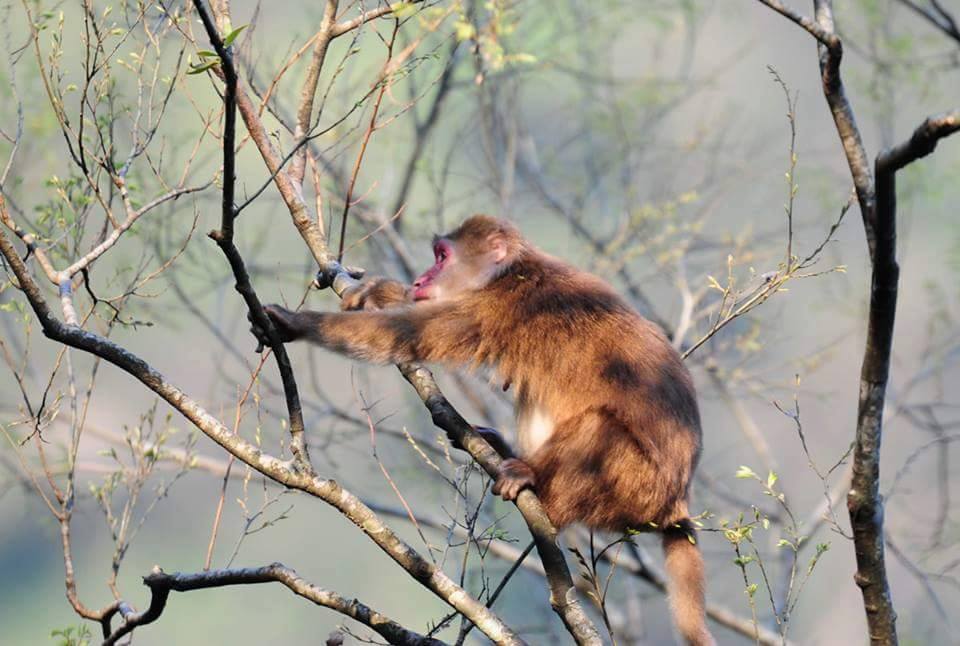 "
"
The White-cheeked Macaque (Macaca leucogenys) is a newly discovered species (in May 2015) of macaque from the Modog (Mêdog County), in Southeastern Tibet in China (Li et al; 2015). The species was distinguished from all potential sympatric macaques (species in the same geographic area) viz. Macaca mulatta, Macaca thibetana, Macaca assamensis and Macaca munzala by several characteristics including pelage (coat of a mammal), relatively uniform dorsal hair pattern, hairy ventral pelage, hairless short tail, prominent pale to white side- and chin-whiskers creating a white cheek and round facial appearance, dark facial skin on the muzzle, long and thick hair on its neck, and round rather than arrow-shaped male genitalia.
In March, 2015 during a birding trip led by Binanda Hatibarua to the Anjaw district of Arunachal Pradesh we encountered a troupe of macaques. The macaques were shy but we were able to photograph one adult female and a few subadults. After returning, we found the pictures closely resembling the newly White-cheeked Macaque. We sent the photographs to Prof. Colin P. Groves, a primate taxonomist, Dr. Long Yongcheng, Prof. Xuelong Jiang and Dr. Peng Fei Fan. We also had a discussion with Chinese experts (Dr. Long Yongcheng, Prof. Xuelong Jiang and Dr. Baoguo Li) during the Asian Primate Red list Assessment Workshop held at Singapore from 19th to 24th November, 2015. On the basis of our observations, the photographs and experts’ comments, we have come to the conclusion that the macaques we observed and photographed in Anjaw District of Arunachal Pradesh is the White-cheeked Macaque (Macaca Luecogenys).
Finding of this new macaque species enhances the prospect of biodiversity conservation in the region and gives thrust to more field studies, research and conservation initiatives. We are determined to undertake proper scientific studies on this species in the area.
It’s interesting to note that in both countries the primate was described by wildlife enthusiasts and photographers rather than scientists.

 CI is a non-profit, non-commercial portal that aims to facilitate wildlife and nature conservation by providing reliable information and the tools needed to campaign effectively.
CI is a non-profit, non-commercial portal that aims to facilitate wildlife and nature conservation by providing reliable information and the tools needed to campaign effectively.



Chosen as 'Picture of the Week'
Finding of this new macaque species enhances the prospect of biodiversity conservation in the region and gives thrust to more field studies, research and conservation initiatives. We are determined to undertake proper scientific studies on this species in the area.